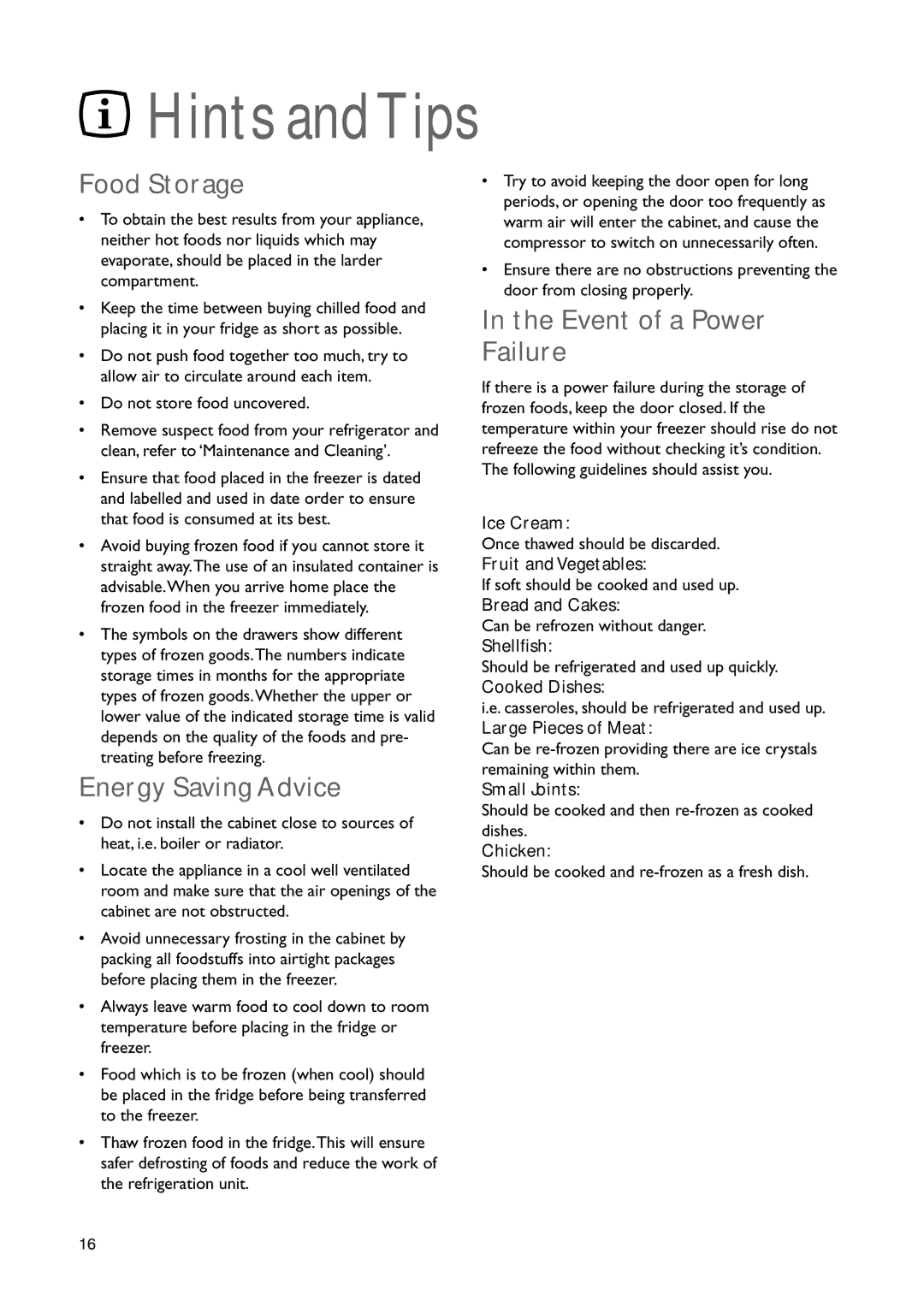JLBIFF 1801 specifications
The John Lewis JLBIFF 1801 is a standout appliance in the realm of integrated refrigerators. Known for its impressive build quality and a plethora of features, this model has gained popularity among those who prioritize both style and functionality in their kitchen.One of the main features of the JLBIFF 1801 is its generous storage capacity. With a total net capacity of 292 liters, it provides ample space for a wide range of foods and beverages. The appliance is designed with adjustable shelves made of tempered glass, allowing users to customize the interior space according to their specific needs. This flexibility ensures that tall bottles, large platters, and various containers can be neatly stored without any hassle.
The JLBIFF 1801 also incorporates advanced cooling technology. It features a No Frost system, which prevents ice buildup, ensuring consistent temperatures and minimizing the need for manual defrosting. This technology maintains ideal humidity levels, preserving the freshness of fruits and vegetables for longer periods. Additionally, the refrigerator is equipped with an LED lighting system, providing even illumination throughout the interior while being energy-efficient.
Energy efficiency is another notable characteristic of the JLBIFF 1801. It comes with an A++ energy rating, which not only helps in reducing electricity bills but also makes it an environmentally friendly choice. The appliance is designed to operate quietly, with a noise level of just 39 dB, making it suitable for open-plan living spaces where peace and quiet are valued.
In terms of design, the JLBIFF 1801 boasts a sleek and modern appearance, featuring a stylish stainless steel finish that complements various kitchen styles. Its integrated design allows it to blend seamlessly with cabinetry, offering a built-in look that enhances the overall aesthetic of the kitchen.
Convenience is further emphasized with features like reversible doors, which provide flexibility in installation and placement. The appliance also includes a dedicated wine rack to accommodate those who enjoy entertaining guests.
Overall, the John Lewis JLBIFF 1801 combines practicality, efficiency, and elegance, making it an excellent choice for anyone looking to upgrade their kitchen with a high-quality integrated refrigerator. Its modern features and user-friendly design ensure that it meets the demands of contemporary lifestyles while adding a touch of sophistication to any kitchen environment.
